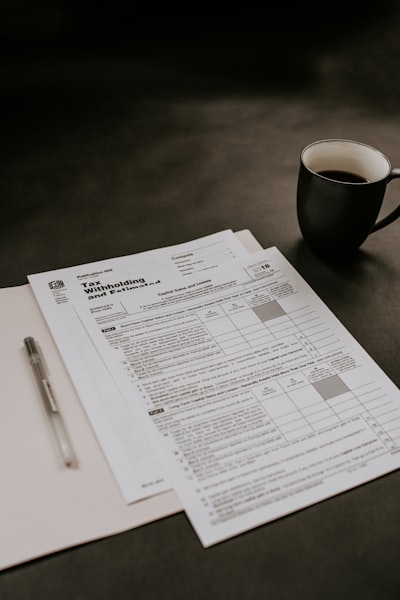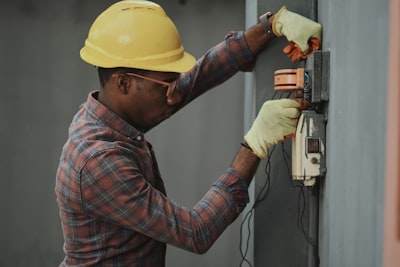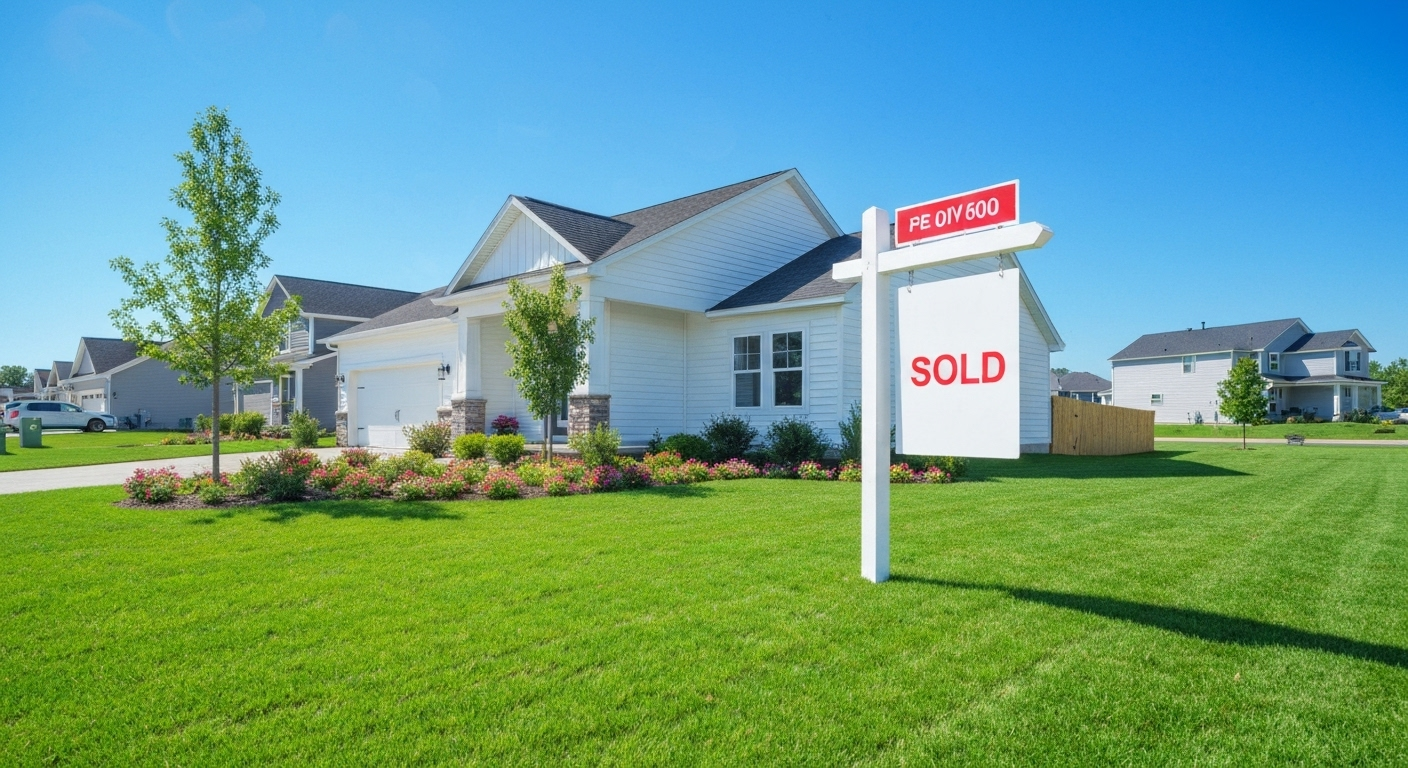Key Highlights
- Beyond your monthly mortgage payment, you must budget for significant hidden costs like closing costs, which can be 2-5% of the loan amount.
- A professional home inspection is crucial for uncovering potential repair needs that aren't visible at first glance.
- Remember to factor in recurring expenses such as property taxes, homeowners insurance, and rising utility bills.
- Unexpected fees like loan origination charges, appraisal fees, and title insurance can add thousands to your initial home purchase cost.
- Setting up an emergency fund is a good idea to handle unexpected repairs without financial stress.
- Don't forget to account for Homeowners Association (HOA) dues and legal fees, which are often overlooked.
Introduction
Buying your first home is an exciting milestone, but the sticker price is just the beginning. Many first-time homebuyers are surprised by the additional costs of homeownership that appear during the homebuying process. These expenses can strain your budget if you aren't prepared. This guide is designed to walk you through the various hidden costs of a home purchase, from one-time fees to recurring expenses, so you can navigate your journey to homeownership with confidence and avoid any financial surprises.
The Hidden Costs of Buying a Home: Essential List for Buyers in the United States
When planning your home purchase, it’s easy to focus solely on the list price. However, numerous additional costs can pop up before you even get the keys. Understanding these hidden costs is essential for creating a realistic budget and a smooth buying experience.
Your real estate agent can help you navigate some of these expenses, but it’s wise to be informed. This list covers both the one-time closing costs you'll face and the recurring expenses that come with owning a home, helping you see the full picture of your investment.
1. Loan Origination Fees
Among the various closing costs, loan origination fees are charged by lenders for processing your mortgage loan application. These fees cover the administrative work involved, such as reviewing your application and preparing documents. You might see this broken down into a processing fee and an underwriting fee.
Typically, this fee is between 0.5% and 1% of the total loan amount. For a $500,000 mortgage, a 1% origination fee would add $5,000 to your upfront costs. Some lenders may not charge this fee but could have higher interest rates, so it's important to compare the overall cost of the loan.
To prepare for this expense, you should:
- Ask lenders for a detailed breakdown of their fees.
- Compare loan estimates from multiple lenders to find the best deal.
- Budget for this fee as part of your total cash-to-close amount.
2. Home Appraisal Charges
Before approving your mortgage, your lender will require a home appraisal to confirm the property is worth the purchase price. An appraiser assesses the home's condition, size, and features, comparing it to similar properties in the area to determine its market value. Even if you're paying with cash, an appraisal is a good idea to ensure you aren't overpaying.
This is a mandatory step in the financing process, and the buyer is responsible for the appraisal fees. These charges typically range from $300 to $400. If the appraisal comes in lower than the agreed-upon sale price, it can complicate the transaction, potentially requiring you to renegotiate or cover the difference.
Here are a few tips for handling appraisal charges:
- Set aside at least $500 in your budget specifically for appraisal fees.
- Understand that this fee is paid upfront and is separate from your down payment.
3. Home Inspection Costs
A home inspection is a critical step that can save you from significant future expenses. For a fee of around $300 to $500, a professional inspector will examine the home for any major issues, such as structural issues or problems with the plumbing and electrical systems. This upfront cost is a small price to pay for peace of mind.
The inspection report can reveal necessary repairs that you weren't aware of. If significant problems are found, you can use the report to negotiate with the seller to either make the repairs or lower the home's purchase price. In some cases, you may decide to walk away from the deal altogether if the issues are too severe.
During your inspection, pay close attention to:
- The inspector's findings on the roof, foundation, and HVAC systems.
- Any signs of water damage, mold, or pest infestations, which may require specialized inspections.
4. Title Search and Title Insurance
Before the home sale is finalized, a title search is conducted to ensure the seller has the legal right to sell the property and that there are no outstanding liens or claims against it. Title insurance protects you and your lender from any future disputes over ownership that may arise from issues discovered after the purchase agreement is complete.
This is one of the key closing costs. Your lender will require you to purchase a lender's policy, but it's highly recommended that you also get an owner's policy to protect your own investment. The cost varies but is a one-time fee paid at closing that provides protection for as long as you own the home.
To prevent costly title issues down the road:
- Always purchase an owner's title insurance policy for your protection.
- Review the title report carefully with your attorney before closing.
5. Attorney and Legal Fees

In some states, it is mandatory to have a real estate attorney involved in the home sale to handle legal documents and oversee the closing. Even if it’s not required, hiring an attorney is a wise decision to ensure your purchase agreement and other contracts are legally sound and protect your interests.
Attorney fees are part of your closing costs and can vary depending on your location and the complexity of the transaction. The attorney will review all documents, conduct the title search, and ensure the closing process goes smoothly. Having a legal expert on your side can prevent costly mistakes.
When it comes to legal fees, consider these tips:
- Ask for a flat-fee pricing structure to avoid unexpected hourly charges.
- Clarify exactly what services are included in the fee to prevent misunderstandings.
6. Escrow Fees
An escrow account is managed by a neutral third party, often a title or escrow company, that holds funds like your earnest money deposit. At the time of closing, this account is used to pay for various expenses, including property taxes and homeowners insurance. Escrow fees are charged for this service.
The amount you pay in escrow fees is determined by the purchase price of the home and local regulations. Your lender may also require you to maintain a certain amount of funds in the escrow account to cover future expenses, which can increase the cash you need at closing.
To better understand your escrow breakdown:
- Review your Closing Disclosure form, which will itemize all escrow charges.
- Ask your lender or escrow agent to explain any fees you don't understand.
7. Property Taxes

Property taxes are an ongoing annual expense for homeowners, but many buyers don't realize they'll need to pay a portion of them at closing. Lenders often require you to prepay up to six months of property taxes when you finalize your home purchase. This amount is held in your escrow account.
The amount you pay is based on the home's assessed value and local tax rates, which can range from 1% to 3% of the home's value per year. After closing, your property tax payments are typically bundled into your monthly mortgage payment, which your lender then pays on your behalf.
To plan for this recurring cost:
- Research the property tax rates for the specific area where you plan to buy.
- Budget for potential annual increases in your property tax bill as the home's value changes.
8. Transfer Taxes
When a property changes hands, many states and local governments impose transfer taxes. This tax is calculated as a percentage of the home's sale price. Depending on where you live, the responsibility for paying this tax can fall on the buyer, the seller, or be split between both parties.
The rates for transfer taxes vary significantly by state, county, and even city, so it’s a cost that can catch buyers by surprise. It's important to understand the local regulations regarding transfer taxes before you make an offer, as it can add a substantial amount to your closing costs.
Before you finalize your local move, make sure to:
- Ask your real estate agent or attorney about who is responsible for paying transfer taxes in your area.
- Factor this potential expense into your budget when calculating your total cash needed for closing.
9. Recording Fees
After you complete your home purchase, the sale must be officially documented with your local government. Recording fees are charged by the county or municipality to legally record the deed and mortgage, making your ownership of the property a matter of public record. This is a necessary step to finalize the transaction.
While not a huge expense compared to others, recording fees are another one of the closing costs you'll need to cover. The amount is usually modest, but it's one more detail to account for in your budget. These fees ensure your purchase agreement is legally recognized.
To prepare for these fees:
- Check your Closing Disclosure, as recording fees will be listed there.
- Set aside a small portion of your closing cost budget for these administrative charges.
10. Homeowners Insurance Premiums
Lenders require you to have homeowners insurance to protect their investment—and yours. This insurance covers damage to your property from events like fire or storms, theft of your belongings, and liability if someone is injured on your property. Even if you don't have a mortgage, it's essential for protecting your asset.
You'll typically need to pay the first year's insurance premium in full at closing, which can cost anywhere from $1,000 to $2,500 annually, depending on the home's value and location. After that, the insurance premiums are usually rolled into your monthly mortgage payment and paid from your escrow account.
To ensure you're properly covered:
- Shop around for quotes from different insurance providers to find the best rate.
- Review your policy to make sure you have enough coverage for unexpected repairs and rebuilding costs.
11. Mortgage Insurance
If your down payment is less than 20% of the home's purchase price, your lender will likely require you to pay for mortgage insurance. This is commonly known as private mortgage insurance (PMI) for conventional loans. This insurance protects the lender, not you, in case you default on your loan.
PMI is an additional monthly cost that gets added to your monthly mortgage payment, typically ranging from $100 to $200. While it allows you to buy a home with a smaller down payment, it increases your overall housing expense until you build up enough home equity.
Here's how you can eventually eliminate mortgage insurance:
- Once you reach 20% equity in your home, you can request to have PMI removed.
- If your home's value has appreciated, you can get a new appraisal to prove your equity has increased.
12. HOA (Homeowners Association) Dues
If you buy a home in a planned community, condominium, or certain neighborhoods, you'll likely have to join a homeowners association (HOA) and pay regular dues. These HOA fees cover the costs of maintaining shared amenities like swimming pools, parks, and landscaping in common areas.
HOA dues are a recurring expense, typically paid monthly or annually, and can range from $200 to $400 a month or more. The amount can vary based on the community's amenities and the home size. It's important to be aware that these fees can also increase over time.
To budget effectively for HOA dues:
- Review the HOA rules and financial documents before making an offer to understand the costs and regulations.
- Factor the monthly HOA fee into your budget alongside your monthly mortgage payment.
13. HOA Transfer Fees
In addition to ongoing HOA dues, you may also encounter a one-time HOA transfer fee when you purchase a home in a community with a homeowners association. This fee covers the administrative costs of transferring ownership records from the seller to you, the new owner.
This is another item that adds to your closing costs during the homebuying process. The amount can vary widely depending on the HOA rules, but it’s a cost you need to be prepared for if you’re moving into a managed community. The responsibility for paying this fee can sometimes be negotiated with the seller.
To manage this potential cost:
- Ask your real estate agent about any applicable HOA transfer fees early in the home purchase process.
- Read the HOA's governing documents to see what fees are required for new residents.
14. Moving Expenses

After the home sale is complete, the fun part begins: moving in! However, the costs associated with moving are often forgotten in the excitement. Moving expenses can add a significant amount to the overall costs of homeownership, whether you're making a local move or relocating from afar.
These costs include hiring professional movers, renting a truck, purchasing packing supplies, and potentially taking time off work. Hiring a full-service moving company can be pricey, so it's important to budget accordingly. Even a DIY move comes with costs for truck rental, gas, and supplies.
Here are a few ways to save on moving expenses:
- Get quotes from multiple moving companies to find a competitive price.
- Save money by packing your own boxes and asking friends or family for help on moving day.
15. Utility Connection and Service Fees
Once you complete your home purchase, you'll need to set up utilities in your name. This often comes with one-time connection or activation fees for services like electricity, gas, water, sewer, and garbage collection. These small fees can add up quickly.
The amount you pay in monthly utility bills will depend on the home size, your location, and your personal usage habits. If you're moving from a smaller apartment to a larger house, be prepared for a potential jump in your utility costs. These are recurring expenses that you need to factor into your monthly budget.
To manage your utility setup:
- Contact utility providers before your move-in date to schedule service and inquire about any setup fees.
- Ask the previous owner for past utility bills to get an estimate of your future monthly costs.
16. Repair and Maintenance Costs

Homeownership comes with the responsibility of ongoing home maintenance and the possibility of unexpected repair costs. From a leaky faucet to a broken water heater, these expenses can arise when you least expect them. Many financial experts recommend budgeting 1-2% of your home's value annually for these costs.
Routine maintenance, such as servicing your HVAC system or cleaning gutters, can help prevent larger, more expensive problems down the line. However, it's still wise to have a fund set aside for any necessary repairs that pop up unexpectedly. These costs are a part of owning a home that many first-time buyers underestimate.
To prepare for repair and maintenance costs:
- Create a dedicated savings account for home repairs and contribute to it regularly.
- Prioritize repairs, addressing urgent issues first to prevent further damage.
17. Furniture and Appliance Purchases
While furnishing your new home is often the fun part, the cost of new furniture and appliance purchases can be a major expense. Depending on the home size and what appliances are included, you might need to buy a refrigerator, washer, dryer, or other essentials right away.
It’s easy to get carried away with decorating, but these costs can quickly add up, especially after paying for your down payment and closing costs. Instead of buying everything at once, consider prioritizing your needs and purchasing items over time. Some buyers may consider a home equity line of credit for major upgrades, but it's best to save and pay with cash if possible.
To help you prioritize your purchases:
- Make a list of essential items you need immediately versus items you can buy later.
- Look for sales, secondhand items, or clearance deals to save money on furnishing your home.
18. Pest Inspection and Remediation
During your home inspection period, it's a good idea to also get a pest inspection. This specialized inspection looks for evidence of termites, carpenter ants, and other wood-destroying insects that can cause serious structural issues. The cost of the inspection itself is relatively low.
If the inspection reveals an infestation, remediation can be a significant expense. The cost to treat the problem and repair any damage, such as water damage that attracts pests, can be substantial. In some cases, you may be able to negotiate with the seller to cover these costs before closing.
For proactive pest management, consider these tips:
- Schedule annual pest inspections to catch any new issues early.
- Address any moisture problems or leaks promptly, as these can attract pests.
19. Landscaping and Exterior Upkeep
If your new home has a yard, you'll be responsible for its landscaping and exterior upkeep. This ongoing expense can include lawn care, gardening, tree trimming, and seasonal clean-up. While maintaining your yard can boost your home's value, the costs can add up.
You can choose to handle the work yourself, which involves purchasing equipment like a lawnmower and gardening tools, or you can hire a professional landscaping service. Either way, lawn care is a recurring cost that should be factored into your monthly budget. These maintenance costs are often underestimated by new homeowners.
To save on outdoor upkeep:
- Consider low-maintenance landscaping options like native plants or hardscaping.
- Learn to do basic lawn care tasks yourself to avoid the cost of hiring a service.
20. Emergency Fund for Unexpected Repairs
One of the smartest financial moves a new homeowner can make is to establish an emergency fund. This savings account is specifically for unexpected repairs, such as a burst pipe or a failing roof, that can't be put off. Having this fund in place prevents you from having to dip into other savings or go into debt.
It's a good idea for first-time buyers to aim for an emergency fund that can cover at least 1% of their home's purchase price. For example, on a $300,000 home, you should have at least $3,000 saved for emergencies. This provides a crucial safety net as you build home equity.
To build and maintain your fund:
- Set up automatic monthly transfers from your checking account to your emergency fund.
- Replenish the fund as soon as possible after you use it for a repair.
Frequently Overlooked Recurring Expenses for Homeowners
Beyond the one-time closing costs, homeownership involves many recurring expenses that can catch you by surprise. These ongoing costs, such as property tax increases and fluctuating utility bills, can impact your monthly budget long after you've moved in.
Planning for these expenses from the beginning is key to avoiding financial stress and sticker shock down the road. By understanding what to expect, you can ensure that your home remains a source of comfort and not a financial burden. The following sections will detail some of these commonly forgotten costs.
21. Annual property tax increases
While you account for property taxes during the homebuying process, many new homeowners are surprised when their tax bill goes up. Property taxes are not fixed; they can increase annually as your home's assessed value rises or if your local government adjusts its tax rates.
These increases can lead to a higher monthly mortgage payment if your taxes are paid through an escrow account. Your lender will re-evaluate your escrow account each year and adjust your payment to cover the new tax amount. This is a common recurring expense that homeowners should anticipate.
To stay on top of your property taxes:
- Review your annual property tax assessment from your local government.
- Check if you are eligible for any property tax exemptions that could lower your bill.
22. Rising utility bills and service charges
Just like property taxes, your utility bills can change over time. Increases in electricity, gas, or water rates can lead to higher monthly expenses. Your usage habits and seasonal changes also play a significant role in how much you pay. A larger home size often means higher utility costs compared to a smaller apartment.
This ongoing expense is another one that often surprises new homeowners. While you may have an initial estimate, it's wise to budget for potential increases in utility costs. Implementing energy-saving measures can help you keep these bills manageable.
To help control your utility bills:
- Invest in energy-efficient appliances and seal any air leaks around windows and doors.
- Adopt energy-saving habits, like turning off lights when not in use and adjusting your thermostat.
Conclusion
In summary, being aware of the hidden costs associated with buying a home is crucial for prospective homeowners. From loan origination fees to ongoing maintenance expenses, understanding these financial obligations can help you budget effectively and avoid unpleasant surprises down the line. By preparing for both one-time costs and recurring expenses, you'll position yourself for a smoother transition into homeownership. Remember, knowledge is power when it comes to making informed decisions about your future. If you're ready to take the next step in your home-buying journey, don’t hesitate to reach out for a consultation or assistance—your dream home awaits!





